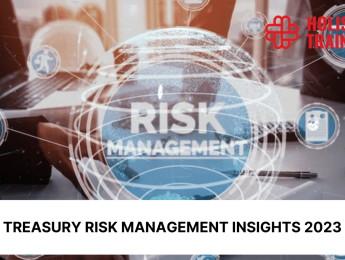- Table of Contents
- Introduction
- What Is Effective Communication in Leadership?
- Importance of Communication Skills for Leaders in the Workplace
- Building Relationships
- Motivating and Inspiring
- Resolving Conflict
- Driving Change
- What Is the Persuasive Leadership Style?
- How to Effectively Communicate As a Leader
- 2- Active Listening
- 3- Clarity and Simplicity
- 4- Emotional Intelligence
- 5- Adapt to Different Communication Styles
- 6- Provide Constructive Feedback
- 7- Practice Authenticity
- 8- Incorporate Technology Effectively
- 9- Promote Inclusivity and Diversity in Communication
- 10- Establish Clear Communication Channels
- 11- Encourage Two-Way Communication
- 12- Continuously Refine Communication Skills
- The Crucial Role of Emotional Intelligence in Leadership Communication
- Understanding Emotional Intelligence
- Impact on Communication Effectiveness
- Practical Application of Emotional Intelligence in Communication
- Training and Development in Emotional Intelligence
- Measuring and Assessing Emotional Intelligence
- Incorporating Emotional Intelligence into Future Leadership Communication Strategies
- Adapting Leadership Communication Post-COVID-19
- a. Virtual Leadership Communication
- b. Emphasis on Empathy and Well-being
- c. Transparent and Timely Communication
- d. Balancing Flexibility and Structure
- e. Focus on Mental Health Awareness
- Exploring the Future of Leadership Communication
- Conclusion
Introduction
Communication lies at the heart of effective leadership. It is the foundation upon which leaders build relationships, inspire others, and drive organisational success. A leader's communication ability can mean the difference between a cohesive, motivated team and a disjointed and uninspired one. In this blog post, we will explore the key elements of influential communication, the importance of communication skills for leaders in the workplace, the persuasive leadership style, and practical tips on how to communicate as a leader effectively.
What Is Effective Communication in Leadership?
Effective communication in leadership encompasses the art of conveying ideas, thoughts, and information clearly and compellingly that resonates with others. It involves both verbal and non-verbal communication, including body language, tone of voice, and active listening. Effective communication requires transmitting information and understanding and interpreting the messages received.
Leaders who excel in communication can articulate their vision, set clear expectations, and motivate their team members. They also actively listen to others, value diverse perspectives, and foster an environment where open dialogue and collaboration thrive. Effective communication in leadership is a two-way street that builds trust, inspires confidence, and promotes engagement among team members.
Importance of Communication Skills for Leaders in the Workplace
Communication skills are essential for leaders in the workplace because they form the bedrock of effective teamwork and organisational success. Not only that but also 70% of corporate errors are attributed to inadequate communication, according to Apollo Technical. In addition, statistics have shown that organisations may incur an annual cost of up to $62.4 million due to ineffective communication. That’s why it’s important to foster effective communication in the workplace. Strong communication skills enable leaders to connect with their team members on a deeper level, establish rapport, and inspire a shared sense of purpose. That being said, let’s delve deeper into why communication skills are crucial for leaders and organisations alike:
Building Relationships
At the heart of effective leadership lies the ability to build strong and authentic relationships with team members. Both verbal and non-verbal communication skills play a crucial role in fostering an atmosphere of trust, respect, and collaboration. When leaders communicate openly and authentically, they create a sense of transparency that builds trust among team members. This trust becomes the cornerstone of effective teamwork, enabling a culture where individuals feel comfortable expressing their ideas, concerns, and contributions without fear of judgment.
Communication Aspect | Description |
Trust Building | Fosters a culture of trust and collaboration. |
Authenticity | Encourages openness and genuine connections. |
Transparency | Establishes clear and honest communication. |
Respectful Interaction | Promotes an environment of mutual respect. |
Collaborative Culture | Encourages teamwork and shared contributions. |
Table 1: Impact of open communication on relationships
Motivating and Inspiring
Leaders with excellent communication skills can inspire and motivate their team members. Through effective communication, leaders can articulate a compelling vision, convey the importance of each team member's role, and create a sense of shared purpose and enthusiasm, increasing productivity. In fact, according to a recent survey conducted by the Harris Poll on behalf of Grammarly, titled ‘The State of Business Communication in 2023,’ findings revealed that an impressive 72% of business leaders attribute increased team productivity to effective communication, a sentiment echoed by 52% of knowledge workers.
Resolving Conflict
Conflict is inherent in any workplace, but leaders with strong communication skills can navigate and resolve conflicts more effectively. By fostering open and honest communication, leaders create an environment where team members feel heard and understood. Active listening, a key component of effective communication, allows leaders to comprehend different perspectives, find common ground, and facilitate resolution. Addressing conflicts constructively prevents lingering tensions, contributing to a harmonious and productive work environment.
Driving Change
Change is inevitable in a constantly evolving business landscape. Leaders must communicate change initiatives clearly and transparently to ensure a smooth transition. Effective communication during times of change involves explaining the rationale behind the change, addressing concerns, and involving team members in the process. Leaders who can communicate the bigger picture and guide their teams through transitions without causing unnecessary anxiety or resistance are pivotal in driving successful organisational change.
In essence, communication skills are the lifeblood of effective leadership. From building relationships and motivating teams to resolving conflicts and driving change, the impact of communication skills is pervasive. Leaders who prioritise and continuously refine their communication skills lay the groundwork for their own success and the success and cohesion of the entire organisation.
What Is the Persuasive Leadership Style?
The persuasive leadership style revolves around influencing others through effective communication. Leaders who adopt this style seek to inspire action, gain buy-in, and achieve desired outcomes. Persuasive leaders understand the power of words and nonverbal cues, utilising them to motivate and convince others.
A persuasive leader employs various communication techniques to make their message more impactful. They use storytelling to engage emotions, provide compelling evidence to support their arguments and tailor their communication style to resonate with different individuals and audiences. Persuasive leaders also actively listen to others, ask thoughtful questions, and consider alternative viewpoints.
While persuasive leaders can be highly influential, it is essential to emphasise that their persuasion should be ethical, authentic, and aligned with the organisation's values. A persuasive leadership style should not be manipulative or coercive but rather aimed at creating shared understanding and driving positive change.
How to Effectively Communicate As a Leader
Now that we understand the importance of influential communication and the persuasive leadership style, let's delve into practical strategies that can empower leaders to communicate and inspire their teams effectively:
1- Develop Self-Awareness
Effective communication begins with self-awareness. Leaders must reflect on their communication style, strengths, and areas for improvement. Understanding one's tendencies allows leaders to adapt their communication to connect more effectively with their team members. Self-aware leaders are better equipped to convey messages that resonate with diverse personalities within their team.
2- Active Listening
Listening is not merely hearing; it's about understanding and engaging. Statistics show that 64% of HR professionals consider active listening the most critical leadership skill. Leaders should practise active listening by fully immersing themselves in the speaker's message. Maintaining eye contact, avoiding distractions, and nodding in acknowledgement all signal active engagement. Encouraging open dialogue, asking clarifying questions, and summarising key points ensure the leader comprehends and acknowledges their team members' perspectives.
3- Clarity and Simplicity
Leaders must strive for clarity and simplicity in their communication. Complex ideas should be broken down into digestible concepts. Technical jargon should be avoided unless absolutely necessary, ensuring the message is accessible to all team members, regardless of their background or expertise. Concrete examples and visual aids can enhance clarity, making the communication more engaging and easily understood.
4- Emotional Intelligence
Leaders with high emotional intelligence understand and manage emotions, both their own and those of others. This understanding is crucial in communication. Leaders can adapt their approach based on the emotional context, fostering empathy, understanding, and compassion. Emotional intelligence is key in creating a positive and supportive work environment where team members feel valued and heard. We’ll discuss this in more depth in a minute.
5- Adapt to Different Communication Styles
Recognising that people have different communication preferences is paramount for effective leadership. Some team members prefer face-to-face interactions, while others favour written communication. Effective leaders adapt their communication style to suit individual preferences, leveraging different channels to convey their message. This flexibility ensures that the communication is received and understood optimally.
6- Provide Constructive Feedback
Feedback is essential for growth and development. Leaders should provide timely and constructive feedback to their team members. Focusing on specific behaviours or actions, rather than making it personal, ensures that the feedback is constructive and actionable. Offering praise and recognition when warranted fosters a positive and supportive environment, motivating team members to excel.
7- Practice Authenticity
Authenticity builds trust and credibility. Leaders should communicate with honesty, transparency, and integrity. Admitting mistakes, acknowledging limitations, and sharing personal stories can enhance authenticity. Authentic leaders create an environment where team members feel secure, fostering stronger connections and a sense of loyalty.
8- Incorporate Technology Effectively
In the digital age, leaders must harness the potential of various communication tools. Virtual communication platforms, project management tools, and collaborative software enable seamless communication in distributed teams. However, leaders must strike a balance, ensuring that technology enhances communication rather than hinders it. Regularly evaluating and updating the tools used can optimise communication efficiency.
9- Promote Inclusivity and Diversity in Communication
Leaders should be mindful of fostering inclusive communication. This involves considering the team's diverse backgrounds, perspectives, and communication styles. Encouraging equal participation, providing opportunities for all voices to be heard, and actively seeking input from team members with varied perspectives contribute to a more inclusive and innovative work environment.
10- Establish Clear Communication Channels
Leaders should establish clear communication channels within the organisation. Whether through regular team meetings, newsletters, or project management platforms, having structured channels ensures that information flows efficiently. Clear communication channels also reduce the risk of misunderstandings and keep all team members well-informed.
11- Encourage Two-Way Communication
Communication should be a two-way street. Leaders should encourage team members to express their thoughts, concerns, and ideas openly. Creating a culture of open dialogue fosters collaboration and ensures that leaders comprehensively understand the team dynamics, enabling them to address issues proactively.
12- Continuously Refine Communication Skills
Leadership is a journey of continuous improvement. Leaders should invest time in refining their communication skills. This may involve seeking feedback, attending communication workshops, or engaging in professional development opportunities. Embracing a growth mindset toward communication ensures leaders stay adaptive and effective in their evolving roles.
Implementing these practical strategies can help leaders unlock their communication potential and create a positive and collaborative work environment. Effective communication is not a static skill; it's a dynamic and evolving aspect of leadership that requires attention, practice, and a commitment to continuous improvement.
The Crucial Role of Emotional Intelligence in Leadership Communication
In effective leadership communication, emotional intelligence is a pivotal factor influencing how leaders connect with their teams. As the ability to understand, manage, and navigate emotions—both one's own and those of others—emotional intelligence plays a crucial role in fostering meaningful and impactful communication.
Understanding Emotional Intelligence
Emotional intelligence encompasses self-awareness, self-regulation, empathy, motivation, and social skills. Leaders with high emotional intelligence can perceive emotions, understand their impact, and navigate interpersonal dynamics with finesse.
Impact on Communication Effectiveness
Enhanced Empathy
Leaders with emotional intelligence can empathise with their team members, recognising and understanding their emotions. This empathetic understanding forms the basis for compassionate and relatable communication.
Adaptive Communication Style
Emotional intelligence allows leaders to adapt their communication style to resonate with different individuals and situations. This flexibility ensures that messages are received and understood in varying contexts.
Conflict Resolution
Emotional intelligence enables leaders to remain composed and guide discussions with empathy in times of conflict. This facilitates constructive dialogue and leads to resolutions considering the emotional well-being of all involved.
Motivation and Inspiration
Leaders with high emotional intelligence can effectively inspire and motivate their teams. They understand the emotional triggers that drive individuals, allowing them to tailor their communication to ignite enthusiasm and commitment.

Practical Application of Emotional Intelligence in Communication
Empathetic Listening
Leaders leverage emotional intelligence to engage in empathetic listening, demonstrating genuine interest in team members' concerns and perspectives. This fosters trust and openness within the team.
Cultural Sensitivity
Emotional intelligence extends to cultural sensitivity, allowing leaders to navigate diverse cultural nuances in communication. Understanding the emotional context within different cultural frameworks promotes inclusive leadership.
Managing Stress and Pressure
Leaders with emotional intelligence can effectively manage stress and pressure, ensuring that their communication remains composed and reassuring during challenging times.
Training and Development in Emotional Intelligence
Recognising the significance of emotional intelligence, organisations are increasingly investing in training and development programmes for leaders. These initiatives aim to enhance leaders' self-awareness, empathy, and overall emotional intelligence, equipping them with the skills needed for effective communication.
Measuring and Assessing Emotional Intelligence
Include a brief discussion on tools and methods for measuring and assessing emotional intelligence among leaders. This may involve self-assessment tools, 360-degree feedback, or other psychometric assessments tailored for emotional intelligence evaluation.
Incorporating Emotional Intelligence into Future Leadership Communication Strategies
As we envision the future of leadership communication, it is clear that emotional intelligence will remain a cornerstone. Leaders and organisations should prioritise the cultivation of emotional intelligence as an integral aspect of leadership development programmes. By fostering emotionally intelligent leaders, organisations can ensure effective communication and a workplace culture that values empathy, collaboration, and resilience.
In summary, the role of emotional intelligence in leadership communication cannot be overstated. As leaders continue to navigate complex challenges and diverse teams, connecting emotionally will be instrumental in fostering a positive and thriving organisational environment. Embracing and enhancing emotional intelligence is not just a leadership choice but a strategic imperative for effective communication and sustainable leadership success.
Adapting Leadership Communication Post-COVID-19
The landscape of leadership communication underwent a seismic shift after the COVID-19 pandemic. The unprecedented challenges and changes brought about by the global health crisis necessitated reevaluating communication strategies. Leaders had to navigate uncharted waters, address uncertainties, foster remote collaboration, and maintain morale amidst upheaval.
a. Virtual Leadership Communication
The widespread adoption of remote work highlighted the importance of virtual communication skills. Leaders needed to harness technology to facilitate effective communication without face-to-face interactions. Virtual meetings, webinars, and collaborative platforms became the norm, requiring leaders to adapt their communication styles to the digital realm.
b. Emphasis on Empathy and Well-being
The pandemic underscored the need for leaders to prioritise empathy and employee well-being in their communication. Acknowledging the challenges faced by team members, both personally and professionally, became crucial. Leaders who demonstrated understanding and offered support saw increased team loyalty and commitment.
c. Transparent and Timely Communication
In times of uncertainty, transparency became a cornerstone of effective leadership communication. Leaders who openly communicated about the impact of the pandemic on the organisation shared plans for navigating challenges and provided regular updates instilled a sense of trust and stability among their teams.
d. Balancing Flexibility and Structure
Post-COVID-19, the traditional structures of work underwent significant changes. Leaders had to find a delicate balance between providing structure and allowing flexibility. Communication became a tool for conveying expectations while recognising and accommodating individuals' unique challenges in their new work environments.
e. Focus on Mental Health Awareness
The pandemic brought mental health to the forefront of workplace discussions. Leaders needed to address the emotional well-being of their teams and promote a culture of open dialogue around mental health. Communication efforts extended beyond professional matters, encompassing personal check-ins and resources for well-being.
Exploring the Future of Leadership Communication
As we move forward, we must recognise that the lessons learned during the COVID-19 era have lasting implications for leadership communication. The integration of virtual communication, emphasis on empathy, and transparent communication practices will likely persist. Leaders must remain agile, ready to embrace emerging technologies and evolving communication norms to stay effective in the ever-changing leadership landscape.
In short, the post-COVID-19 era has reshaped the way leaders communicate. The lessons learned underscore the importance of agility, empathy, and adaptability in leadership communication. As we navigate the future, staying attuned to our teams' evolving needs and leveraging the insights gained from recent challenges will be instrumental in fostering effective leadership through communication.
Conclusion
Unleashing the power of influential communication is a crucial aspect of leadership. Effective communication skills enable leaders to build relationships, inspire their teams, and drive organisational success. Leaders can unlock their communication potential by developing self-awareness, actively listening, striving for clarity, and adapting to different communication styles and creating a positive and collaborative work environment. Embracing a persuasive leadership style grounded in ethical and authentic communication can further enhance a leader's ability to influence and inspire others. So, let us harness the power of influential communication and propel our leadership journey to new heights.
In your journey to becoming a masterful communicator and a transformative leader, consider enrolling in our comprehensive course, ‘Effective Communication as a Leader. ' This course will help you further hone your communication abilities and unlock your full leadership potential.
























